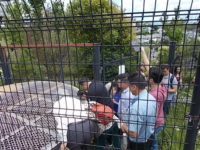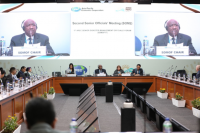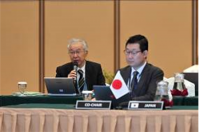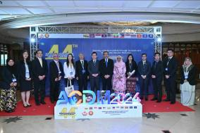27-29 May 2024 (Incheon, Republic of Korea)
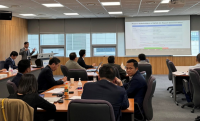 ADRC participated in the Inter-Regional Dialogue 2024, with the theme "Tools and Technologies for Multi-Hazard Risk Assessment and Early Warning: Sharing Experience among Countries in the Asia Pacific Region," held on 27-29 May 2024 in Incheon, Republic of Korea. This event was jointly organized by the Trilateral Cooperation Secretariat (TCS) and the United Nations Office for Disaster Risk Reduction Office for Northeast Asia & Global Education and Training Institute (UNDRR ONEA & GETI) in support of the Early Warnings for All initiative, which the UN Secretary-General launched in 2022 to ensure a universal coverage of early warning systems by 2027.
ADRC participated in the Inter-Regional Dialogue 2024, with the theme "Tools and Technologies for Multi-Hazard Risk Assessment and Early Warning: Sharing Experience among Countries in the Asia Pacific Region," held on 27-29 May 2024 in Incheon, Republic of Korea. This event was jointly organized by the Trilateral Cooperation Secretariat (TCS) and the United Nations Office for Disaster Risk Reduction Office for Northeast Asia & Global Education and Training Institute (UNDRR ONEA & GETI) in support of the Early Warnings for All initiative, which the UN Secretary-General launched in 2022 to ensure a universal coverage of early warning systems by 2027.
In this dialogue, participants from the trilateral cooperating countries China, Japan, and Korea (CJK) shared their respective experiences, tools, and technologies on multi-hazard early warning systems (MHEWS) with other countries in Asia-Pacific region, including Cambodia, Indonesia, Lao PDR, Malaysia, Philippines, Singapore, Thailand, East Timor, and Viet Nam as well as Bangladesh, Bhutan, India, Maldives, Mongolia, Nepal, Pakistan, Sri Lanka, and Kazakhstan.
The common MHEWS issues in these countries are: 1) warning information is not targeted to specific communities-at-risk; 2) warning information dissemination is usually one-way communication, and there is no feedback on whether the communities-at-risk have successfully evacuated; and 3) different warning agencies maintain their own databases that need to be integrated to achieve reliable forecast and warning.
Japan made two presentations at the plenary. One concerned the "QZSS DC Report," an early warning message dissemination service of Japan using the "Michibiki" satellites system known as "Quasi-Zenith Satellites System," presented by Mr Gerry Potutan, senior researcher at ADRC. The other concerned the "Nankai Trough Earthquake Warning Information," delivered by Mr UMETSU Togo, Policy Office International Cooperation Division Disaster Management Bureau, Cabinet Office, Government of Japan.
This inter-regional dialogue facilitated greater regional collaboration in terms of: 1) available MHEWS tools and technologies; 2) effective practices for risk reduction among disaster-prone countries in relation to early warning; and 3) community-level capacity development in disaster risk reduction between Northeast Asia and other sub-regions of the Asia Pacific region.
(2024/06/03 15:00)


